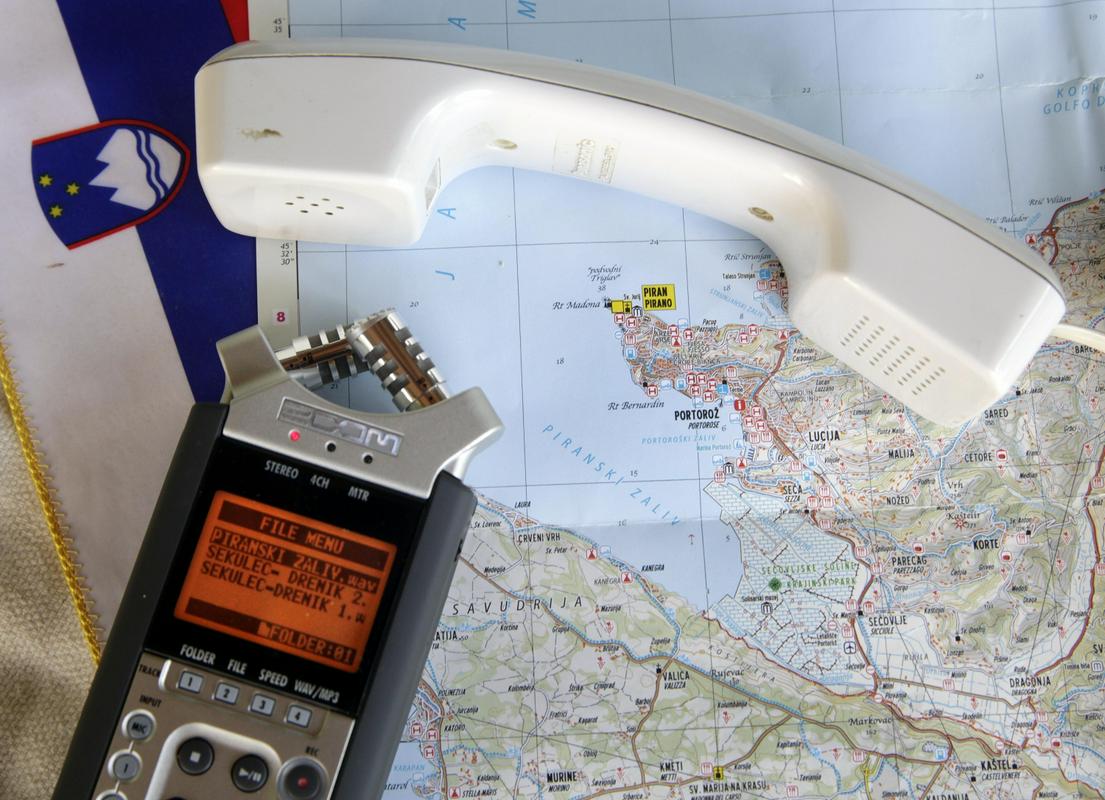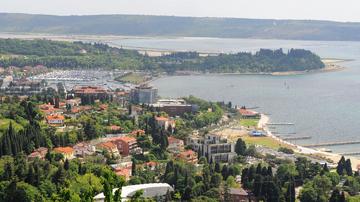
The political affair of spying on phone conversations between the Slovenian member of the Court of Arbitration Jernej Sekolec and the Slovenian arbitration advocate Simona Drenik has evolved into two directions. On the one side, Croatian politics is convinced that the arbitration agreement "is dead", at least according to statements for Croatian press, while Slovenia on the other side is very upset about spying on phone conversations, for which allegedly the Croatian intelligence service is responsible.
Judging by the quality of the recordings, which have been published online, the media report that eavesdropping most likely took place in Ljubljana, where Drenik is based, since her voice is much louder and clearer, adding that a conversation between Ljubljana and Vienna was spied on.
Croatian media have attempted to refute allegations coming from the Slovenian side – with the latter claiming that spying was performed by Croatian intelligence – by pointing out that it hasn't even occurred to anyone in Slovenia to consider that the recordings could have been taped by intelligence from another country and then handed in to Croatia so that the latter could protect its interest in an evidently compromised arbitration process, as Croatian daily "Jutarnji list" writes. Others speculate spying could be the work of private intelligence agents who have appropriate equipment.
Could the U.S.A. be behind this?
The unofficial world champions of eavesdropping are the Americans. Could Croatia have got the recordings from them, could they have monitored Slovenian citizens? "I don't believe that in this case big systems, such as the American one, would want to be involved. If these countries had some interest here, they would probably employ private organisations," notes the former head of the Slovenian Intelligence and Security Agency (SOVA), now a professor of criminal justice and security, Iztok Podbregar. However, he believes it is possible for the spying to have been ordered, since such eavesdropping can be performed by private companies or groups from the Balkans, as there still exist organisations composed of people trained for such activities during the Balkan wars in 1990s.
"This was published in Croatia, and Croatian politics seized the opportunity. Therefore, it is a fact that someone did this in their interest," emphasizes Podbregar. Nevertheless, such eavesdropping is not a very complex task, he explains. If the entire report on various intelligence activities such as intercepting phone and e-mail communication were published, it would be possible to claim with greater certainty that this had been the work of intelligence service.
Slovenian intelligence service did everything right
The former head of SOVA has also responded to criticism directed at the work of Slovenian intelligence agents. He argues SOVA is not the blame, since in his opinion the authorised services did everything right regarding the security protocols and counter-intelligence activities. However, on the other hand, its options of legal operation are limited.
"In regard to relations with Croatia, we should ask ourselves in the light of eavesdropping – since this is some kind of a precedent – that such information was published in the media and that the politics is being built on it. The key problem of this story is that the security policy in this region has worsened," warns Podbregar.
Eavesdropping phone conversations of Slovenian representatives regarding border arbitration is only a short chapter in a larger context of eavesdropping scandals throughout Europe, with the U.S.A. presumably having spied on German chancellor Angela Merkel and the French politicians. Yet, there were no strong responses to these activities in the respective countries. Podbregar says this is because neither European politicians nor the States treated eavesdropping findings as official documents.
"That's why this is unique with Croatia, who has already started to overthrow the arbitration agreement. Croatia is building its politics on this. An old truth, as I've already told, says that anyone who builds their politics on some spy intelligence issue – that's short term politics. Political exploitation of eavesdropping is a huge own goal for Croatia, which I'm afraid they'll be paying for in the long run," concludes the former chief of Slovenian intelligence service.
Gregor Cerar, MMC
































































